
The Cement Test Sieve is sand used by the construction industry to measure the particle size distribution of cement; made of brass or stainless steel and available in different mesh sizes to meet the specific requirements of the test.
Price: $15.00-$350.00/Set Chat Now
Standard: GB/T6003.1
Diameter: 200mm, 300mm, 400mm
Material: Brass/Stainless Steel
Screen type: wire woven screen, perforated plate screen, electroforming screen
Uses: Used for testing cement, asphalt, soil, sand, aggregate, etc.
A Cement Test Sieve is a tool used to screen cement particles, it is usually made of steel plate and wire mesh. According to standards such as ISO3310 and ASTME11, the aperture size of the screen can be adjusted according to requirements. The cement test sieve can be used to determine the distribution of each particle in the cement, and then determine the basic characteristics and application value of the cement.
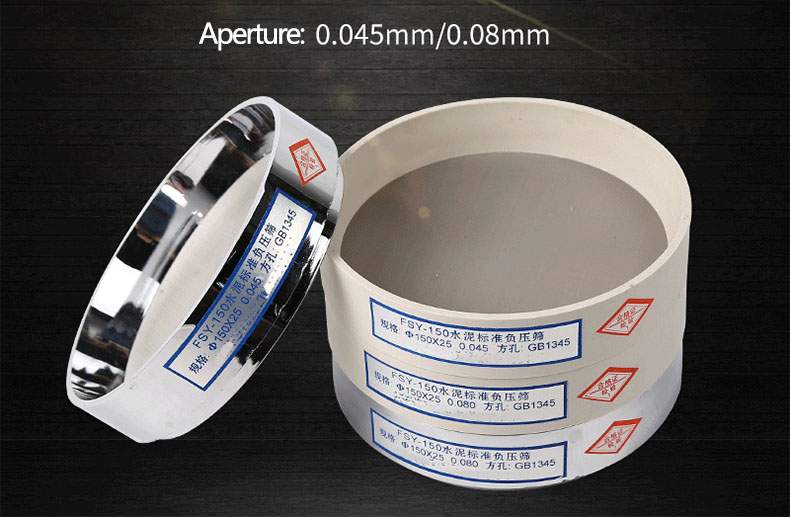
1. Determining the size distribution of cement particles
Cement Test Sieve can separate cement particles by size and record the distribution. In this way, the proportion and distribution of the individual particle sizes can be determined and the basic properties of the cement can be analyzed and evaluated.
2. Assess the quality of cement
The quality of cement directly affects the strength and durability of concrete; through the screening and analysis of cement through Cement Test Sieve, you can understand its basic characteristics such as particle size distribution and density; these characteristics can assist in the evaluation of cement quality, so as to ensure the quality of concrete the quality of.
3. Evaluate the suitability of different cements
Different types of cement have different properties and fields of application. Through the screening and analysis of different types of cement through Cement Test Sieve, you can understand its optimal application range, so as to guide the selection and construction of on-site engineering.
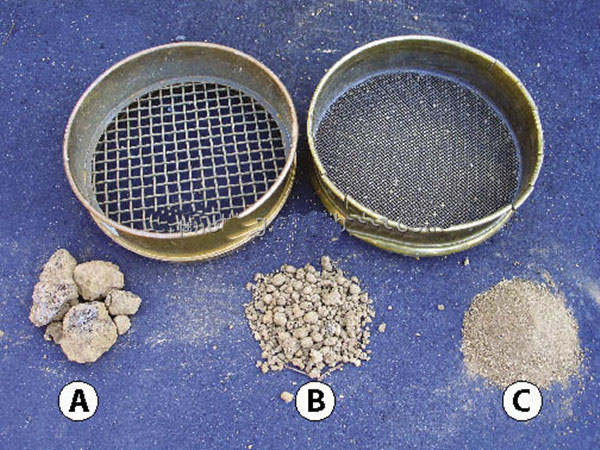
Cement Test Sieve is mainly used in the construction material industry, including cement, concrete, gypsum and other fields. The specific application fields are as follows:
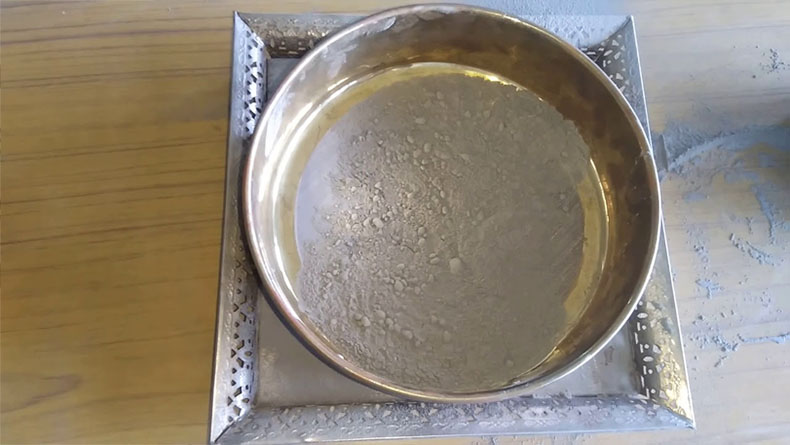
1. Screening of cement raw materials: In cement production, raw materials need to be screened to ensure that the raw materials meet the required particle size requirements.
2. Screening of concrete materials: In concrete production, aggregates, sand and other materials need to be screened to ensure the quality of concrete.
3. Adjustment of mortar mix ratio: The mortar mix ratio often needs to be adjusted according to the experimental results. Cement Test Sieve can obtain the experimental results of different particle size mix ratios.
4. Determination of concrete strength: Cement Test Sieve can be used to measure the strength of concrete, and the results of different strengths can be obtained by experimenting with the mix ratio of different particle sizes.
5. Screening of gypsum products: In the production of gypsum products, raw materials need to be screened to ensure that the raw materials meet the required particle size requirements.
1. The mesh size can be adjusted
The sieve size of Cement Test Sieve can be adjusted according to the experimental requirements, generally between 0.01mm and 5mm. Different sized sieve openings can be used to screen particles of different sizes to determine the size distribution of cement particles.
2. Durable steel plate and wire mesh
Cement Test Sieves steel plates and wire mesh are usually made of high-quality stainless steel, which is characterized by high strength and wear resistance. This durability is great for repeated use and disassembly for cleaning.
3. Easy to clean
The Cement Test Sieve has a simple design for easy cleaning. During the experiment, cement particles may adhere to the sieve hole, and the sieve hole can be restored to its original state by cleaning, thus ensuring the accuracy and reliability of the experiment.
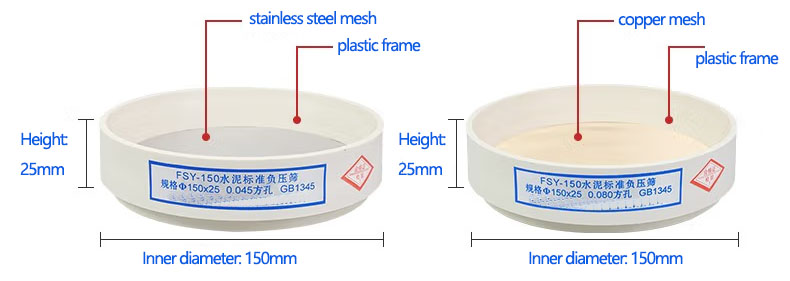
| Product | Aperture | Sieve | Sieve frame |
| Plastic Cement Test Sieve | 0.045mm | Stainless steel | plastic |
| 0.080mm | copper mesh | plastic |
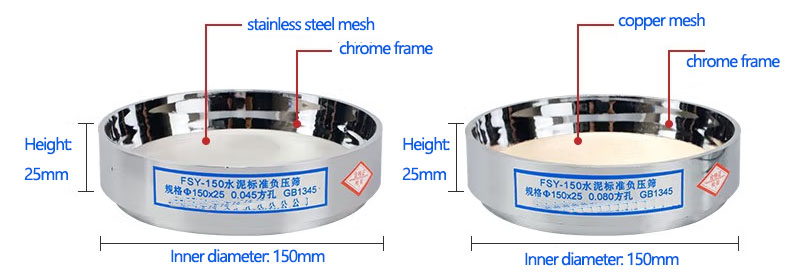
| Product | Aperture | Sieve | Sieve frame |
| Chrome-plated Cement Test Sieve | 0.045mm | Stainless steel | chrome plating |
| 0.080mm | copper mesh | chrome plating |
Cement Test Sieve is to filter the cement sample through a sieve to obtain cement particles of different particle sizes, and then test the cement. Specific steps are as follows:
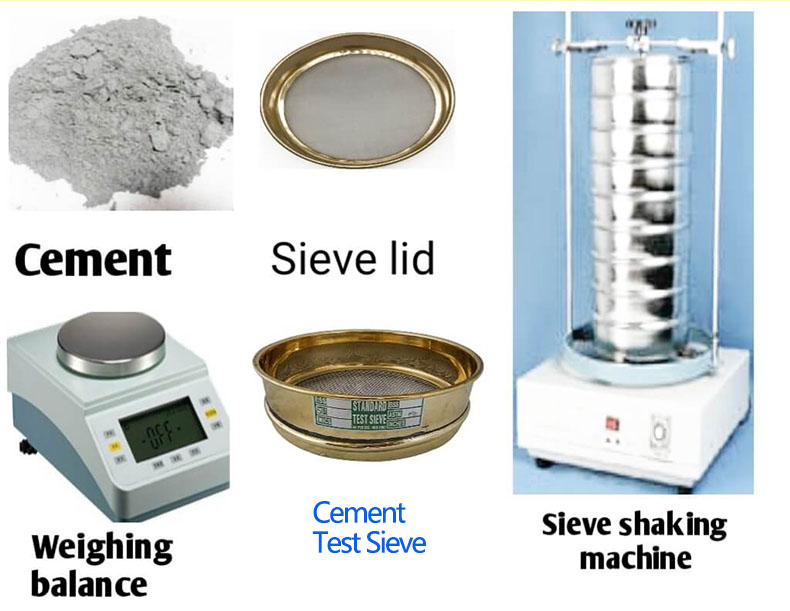
1. Prepare cement samples and test sieves. Select a test sieve suitable for the particle size of the sample, generally use a sieve with a size of 75mm or 100mm.
2. Place the cement sample in the test sieve. Add the cement sample into the test sieve according to a certain ratio. Generally, the amount of cement sample used for each sieve is about 100g.
3. Shake the test sieve lightly by hand. Allow the cement sample to be evenly distributed in the test sieve while filtering through the screen.
4. Separation of cement particles of different particle sizes. Place the Cement Test Sieve on a vibrating sieve machine to vibrate to separate cement particles of different sizes. The separated cement particles can be observed with a magnifying glass or a microscope for more accurate detection.
5. Determination of cement quality indicators. Through the determination of the quality indicators of the separated cement particles of different particle sizes, such as cement strength, cement fluidity, etc.
6. Document the results and analysis. Record the test results in the table, and make necessary analysis and judgment.
What is sieve analysis test for cement?
Sieve analysis test for cement is an essential test carried out to determine the particle size distribution of cement particles. It involves the separation of cement particles into ...
Standard sand sieve for cement testing
Cement Standard sand sieve is mainly used in various laboratories, laboratories, item screening, sieving, grading and other inspection departments to accurately determine the partic...
The sieve analysis test for sand is a method used to determine the particle size distribution and analysis of sand; it is commonly used for sand and gravel, and the visible sand is ...
Standard Soil Sieve Sizes and Specifications
Standard Soil Sieve is a tool for detecting the particle size distribution and analysis of soil particles larger than 0.075mm in diameter. ...
Are you interested?
![]()
Then we look forward to hearing from you
Contact Us
Industrials
Yanjin county forest park gate to the west 1000 meters north road sitemap
